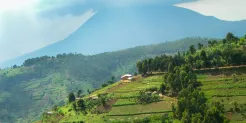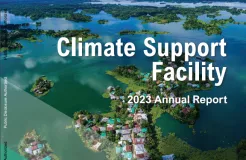The Western Balkans Plus Program is supported by Austria’s Ministry of Finance (BMF) and has the objective of advancing climate change and green growth priorities in countries of the Western Balkans and the broader Europe and Central Asia (ECA) region. The program’s geographic focus is primarily driven by the unique socioeconomic context of these countries, and their need for targeted support to address the climate and environmental challenges arising from high fossil fuel dependency, infrastructure gaps, and strategies associated with the European Union’s (EU) Green Agenda.
The program provides resources to support countries in adopting impactful policy reforms and undertaking investments to reduce GHG emissions, strengthen resilience to climate shocks, and improve environmental outcomes. It is closely aligned with World Bank lending operations in the region, advancing various policy priorities and addressing investment needs for climate and green growth through such operations.


